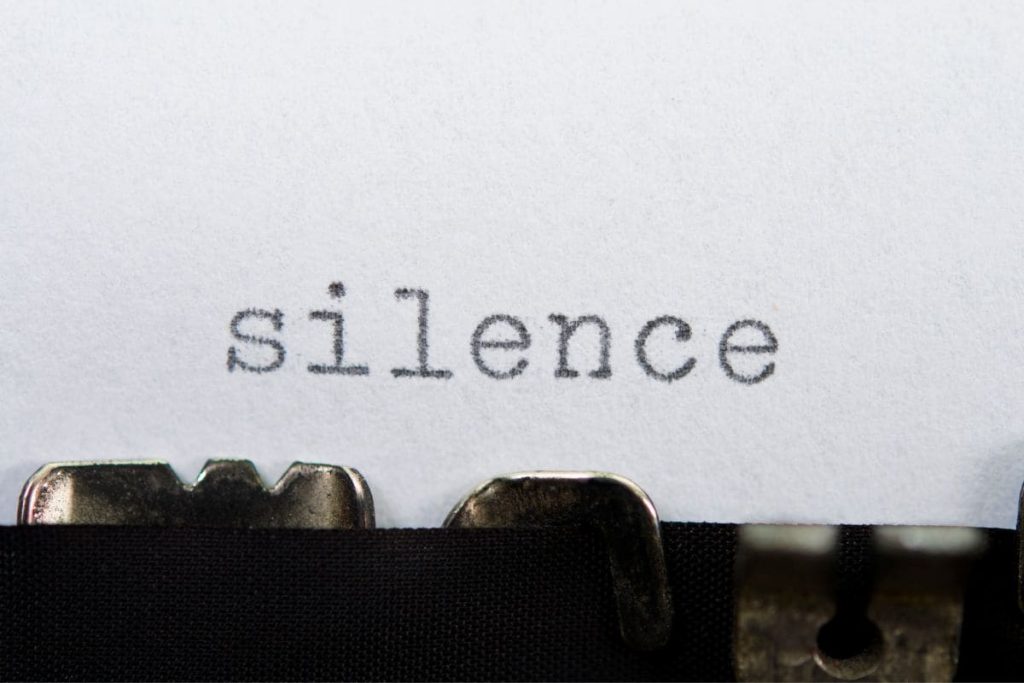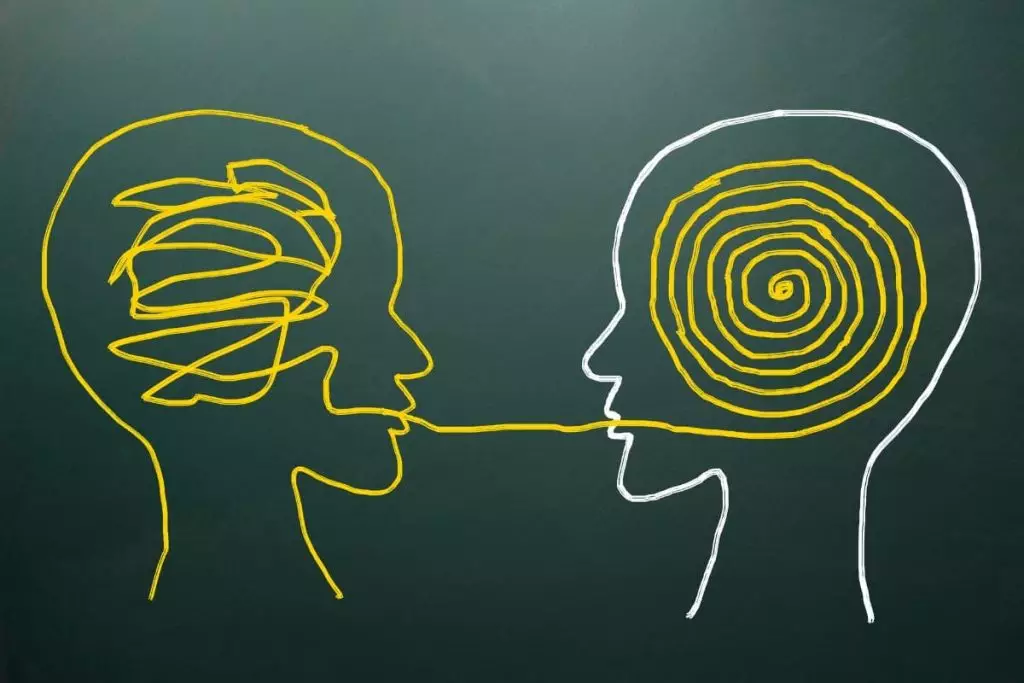In a world that seems to celebrate extroverted personalities, introverts may sometimes feel overshadowed or misunderstood. However, introverts possess a unique strength that often goes unnoticed – the power of silence. Learning to embrace and harness this potent tool can lead introverts to thrive in both their personal and professional lives.
Silence allows introverts to recharge their energy reserves, process information deeply, and connect intimately with their innermost thoughts and emotions. Furthermore, it can also influence social interactions in a positive way, fostering better understanding and problem-solving skills. In the following paragraphs, we’ll take a closer look at why silence is so significant for introverts, and how it can be used to unleash their full potential.
The Power Of Silence For Introverts

In this section, we’ll explore the power of silence for introverts and how it can be harnessed to improve communication skills, enhance well-being, and make a meaningful contribution in any setting.
Enhanced Focus And Creativity
For introverts, silence provides a sanctuary for uninterrupted thinking and creativity. The absence of external noise allows the mind to dive deeper into ideas and explore new concepts without distractions. This heightened focus can lead to innovative solutions and a more in-depth understanding of complex problems.
Furthermore, silence helps introverts recharge after social interactions, which can be mentally draining. By retreating into a quiet space, they can replenish their mental energy and emerge with a renewed sense of motivation and creativity.
Improved Decision-Making
Introverts tend to process information internally, weighing the pros and cons before arriving at a decision. Silence plays a significant role in facilitating this internal dialogue. By allowing the mind to be still, introverts can analyze situations objectively and consider multiple perspectives before reaching a well-informed decision.
Additionally, silence encourages introspection, enabling introverts to assess their feelings, thoughts, and values. This self-awareness contributes to more confident decision-making, as introverts can better align their choices with their personal principles and goals.
Silence As A Tool For Self-Reflection

Self-reflection is a crucial aspect of personal growth, and for introverts, silence often provides the ideal backdrop to delve into their inner world. By taking a step back from the noise and chaos of everyday life, introverts can use silence as an opportunity to explore their thoughts, feelings, and desires more profoundly.
When introverts immerse themselves in quiet moments, they can easily analyze past experiences and ponder future decisions. This self-awareness enables them to understand their emotions better, identify areas of personal improvement, and work on building stronger relationships with others.
Some ways introverts can use silence as a tool for self-reflection include:
- Meditation: Practicing mindfulness or meditation in silence helps introverts clear their minds and focus on the present moment, providing clarity and insight into their thoughts.
- Journaling: Writing down thoughts and feelings in a quiet setting allows introverts to express themselves without external pressures, leading to an enhanced awareness of their emotional landscape.
- Spending time alone: Solitude provides introverts with the space they need to recharge and process their experiences, resulting in a heightened sense of self-understanding and personal growth.
Ultimately, the power of silence lies in its ability to provide introverts with the mental space they need for serious self-reflection. This invaluable tool enables them to nurture their inner world and live a more authentic, self-aware life.
Maintaining Healthy Boundaries

Introverts often need to establish and maintain healthy boundaries to ensure their well-being in social situations. Let’s explore how embracing personal space and setting limits can help introverts harness the power of silence.
Embracing Personal Space
Personal space is essential for introverts as it allows them to recharge and reflect. It’s crucial for introverts to make time for themselves and prioritize their needs to avoid burnout.
- Create a quiet and comfortable space at home or work where you can retreat and relax.
- Set aside regular time each day for solitude and reflection to recharge your mental and emotional batteries.
- Communicate your needs for personal space to your loved ones and coworkers, so they understand your preferences and can respect your boundaries.
Setting Limits
Setting limits is another important aspect of maintaining healthy boundaries. Introverts can benefit from being assertive about their preferences in various situations.
| Scenario | Setting Limits |
| Social Events | Only attend events that genuinely interest you, and give yourself permission to leave when you feel your energy dwindling. |
| Work Life | Establish clear work hours, break times, and meeting schedules, and communicate your preferences to your colleagues. |
| Relationships | Have open and honest conversations with your loved ones about your needs for personal space and quiet time. |
By embracing personal space and setting limits, introverts can ensure they maintain healthy boundaries, which ultimately allows them to tap into the power of silence more effectively.
Silence And Communication

From active listening to thoughtful contributions, introverts can use silence as a tool to communicate more effectively and authentically. So, let’s dive in and explore the power of silence in communication for introverts.
Listening Skills
For introverts, silence is a communication tool that allows them to develop deep listening skills. In contrast to extroverts, who may rely on verbal communication, introverts gain a better understanding of others and their surroundings through attentive observation.
When introverts listen to others, they tend to process the information in greater depth, considering both the content and the context. As a result, their responses are often well-thought-out and contribute meaningfully to the conversation.
Nonverbal Communication
Nonverbal communication plays a significant role in interactions between people, especially for introverts. This form of communication relies on body language, facial expressions, gestures, and tone of voice. Introverts often excel at picking up on these subtle cues when they spend time in silence.
Moreover, introverts may use nonverbal communication to convey their thoughts and emotions without uttering a single word. This ability to express themselves without verbal communication can create a strong connection with others, who may appreciate the genuine empathy demonstrated by introverts in their silent interactions.
Overcoming Challenges In A Noisy World

Introverts face several challenges in a world filled with noises, distractions, and societal pressures. This section will highlight effective strategies for finding those much-needed quiet moments and addressing misconceptions frequently associated with introversion.
Strategies For Finding Quiet Moments
It’s essential for introverts to recharge and find solace in quiet environments. Here are a few practical tips that can help in finding those moments in daily life:
- Create a personal sanctuary or quiet space at home, with minimal distractions and a calming atmosphere.
- Utilize noise-canceling headphones or earplugs to block out unwanted sounds during activities that require focus and attention.
- Take breaks or short walks outside, making use of nearby parks or green spaces to momentarily escape the noise.
- Establish boundaries with family members or roommates and request dedicated time for personal reflection and relaxation.
- Develop a mindful morning or evening routine, incorporating meditation or journaling to foster quiet moments of introspection.
Dealing with Misconceptions
Introverts are often subjected to misconceptions and stereotypes that can be both frustrating and demoralizing. It’s essential to address these for personal well-being and also for better understanding among people with different personality types.
Here are some common misconceptions about introverts and suggestions for addressing them:
| Misconception | Reality |
| Introverts are shy and socially awkward. | Introversion does not equate to shyness; it’s more about the preference for and energy derived from quieter environments. |
| Introverts don’t enjoy socializing or meeting new people. | Introverts can certainly enjoy socializing but may prefer smaller, more intimate gatherings and meaningful conversations. |
| Introverts are not team players. | Introverts excel at teamwork but may prefer written communication and working independently before merging ideas as a group. |
By dispelling these misconceptions and implementing strategies for finding quiet moments, introverts can successfully navigate a noisy world and harness the power of silence.
Parting Words

In conclusion, silence plays a significant role in the lives of introverts. It allows them to recharge their mental batteries, enhances their creativity, and fosters deep connections with others. By embracing silence, introverts can thrive and make the most of their unique strengths.
It’s important for society to recognize and appreciate the value of silence and solitude as a way to cater to diverse personalities and create an environment where everyone can flourish.

